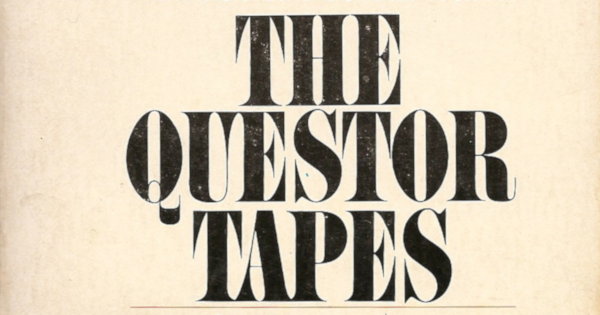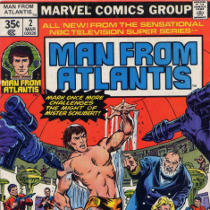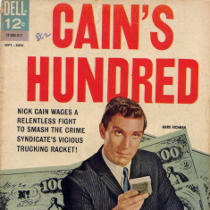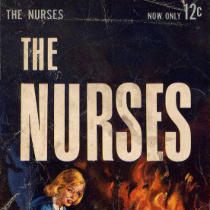Bookshelf is a monthly column examining printed matter relating to television. While I love watching TV, I also love reading about it, from tie-in novels to TV Guides, from vintage television magazines to old newspaper articles.
The Questor Tapes
By D.C. Fontana
First Published October 1974
Published by Ballantine Books
156 Pages
Reviewing a novelization of a television program is difficult if you’ve never seen the program being. In this case, D.C. Fontana’s The Questor Tapes was a novelization of an unsold pilot for a proposed 1973-1974 NBC television series to be called Questor, created by Gene Roddenberry (credited as Executive Consultant on the pilot). The pilot was broadcast on January 23rd, 1974 as a made-for-TV movie called The Questor Tapes.
Questor got about as close to becoming a full-fledged series as you can get without actually making it on the air. Although passed over for the 1973-1974 season, NBC planned to use it as a mid-season replacement with a January 1974 premiere date. At least four scripts were written before the plug was pulled due to conflicts between Roddenberry and the network. You can read more about the pilot and its struggles at TV Party.
The teleplay was written by Roddenberry and Gene Coon, who wrote a number of episodes of Star Trek, based on a story by Roddenberry. Coon died before the pilot was aired.
The Questor Tapes was put into syndication and seen on local stations and later on cable over the years. In 2012 it released on DVD through the Universal Vault Series. Despite having read and enjoyed the novelization twice, once a number of years ago and again earlier this week, I’ve never seen the telefilm.
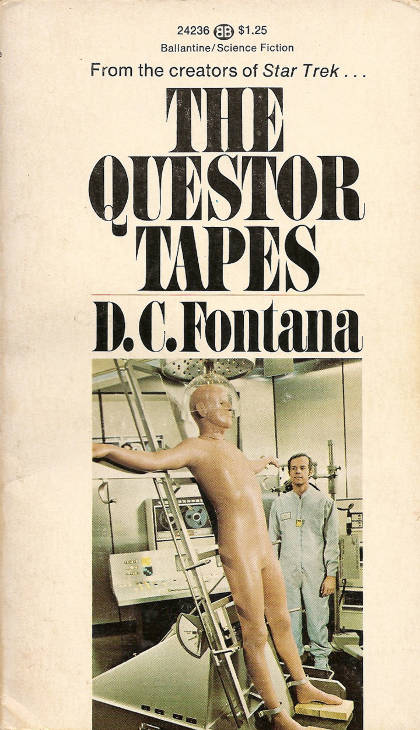
Front Cover to The Questor Tapes – Copyright 1974 Universal City Studios, Inc.
As far as I can tell, the novelization followed the plot of the telefilm exactly, with some added characterization and the typical extra details used to turn scripts into prose. It begins with the attempted activation of an advanced android designed by the brilliant Emil Vaslovik and built by a five-nation organization. Vaslovik had disappeared years earlier and left instructions that his Jerry Robinson finish constructing the android.
Project Questor, as it was called, was supervised by a man named Geoffrey B. Darro, somewhat ruthless but known for never breaking his word. The activation fails — or so it seems. The android does work and has been programmed to find Vaslovik. It decides to call itself Questor. Due to damaged data tapes, Questor doesn’t know exactly how to find Vaslovik and forces Jerry to help him.
The two fly to England with Darro giving chase. Questor slowly begins to learn to emulate human behavior, which doesn’t always sit well with Jerry. There’s hints of a global organization Vaslovik was involved with, potentially a dangerous one. Ultimately, Questor and Jerry do find Vaslovik and learn the truth about him and why Questor was built. It ends with Questor and Jerry deciding to continue to work together for the betterment of mankind.
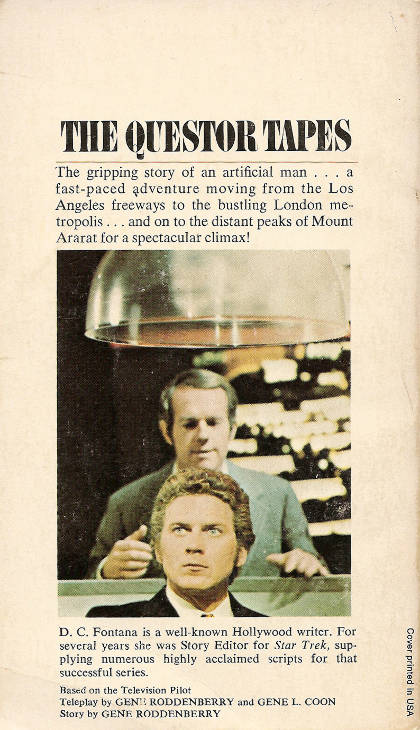
Back Cover to The Questor Tapes – Copyright 1974 Universal City Studios, Inc.
Although The Questor Tapes is now four decades old, because it is available on DVD I don’t want to spoil the ending. Suffice it to say, the first time I read the novelization I did not see it coming. Would it have made for an engaging weekly series? Perhaps. NBC didn’t think so, asking for changes that reportedly involved dropping the Jerry character and making the series more like The Fugitive.
The pilot starred Robert Foxworth as Questor, Mike Farrell as Jerry Robinson and John Vernon as Geoffrey Darrow, with Lew Ayres as Dr. Vaslovik.
Given how much I’ve enjoyed reading The Questor Tapes, perhaps one day I’ll actually watch the unsold pilot and maybe get my hands on some of the unproduced scripts.
Quick Reviews
In October 2009 I reviewed the novelization of the first pilot telefilm to Man from Atlantis.
And in May 2010 I reviewed the novelization of Senior Year, the pilot telefilm to Sons and Daughters.
Finally, in August 2010 I wrote about novelizations in general, examining the earliest novelized television episodes and wondering why they fell out of favor in the 1970s.

